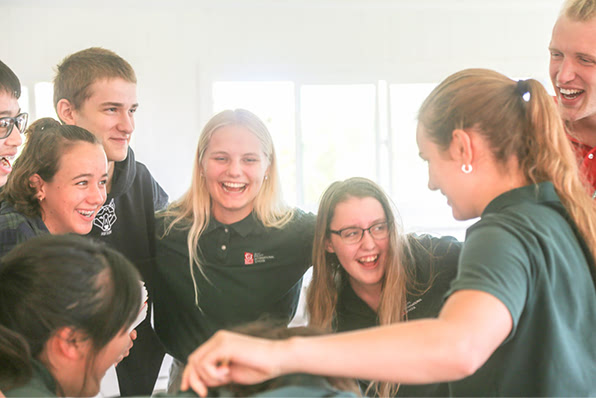Signature Programs

- About
- Signature Programs
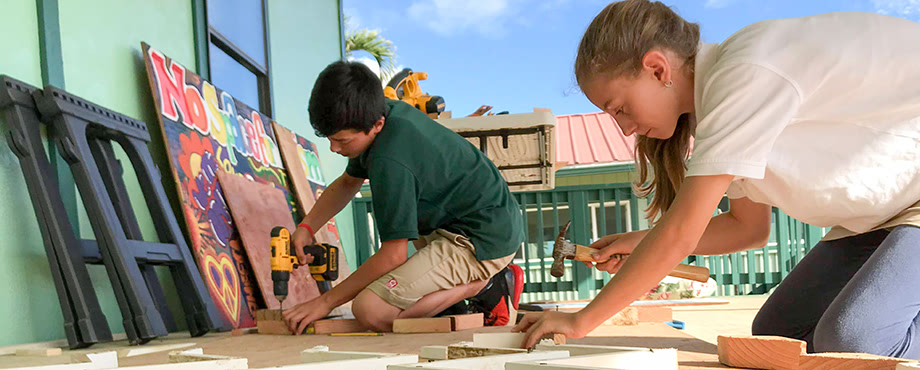
Project-based learning (PBL) is integrated throughout all core and elective courses at APIS. Students learn by identifying real-world problems and developing solutions, all while speaking with experts, having place-based experiences, and showcasing solutions at exhibitions. Whether students are collaborating to solve plastic pollution in the Pacific Ocean, growing produce to sell at a farmers’ market, or teaching a multilingual tourist about coral safety, they are always having authentic, interdisciplinary learning experiences while broadening the breadth and depth of content lessons.
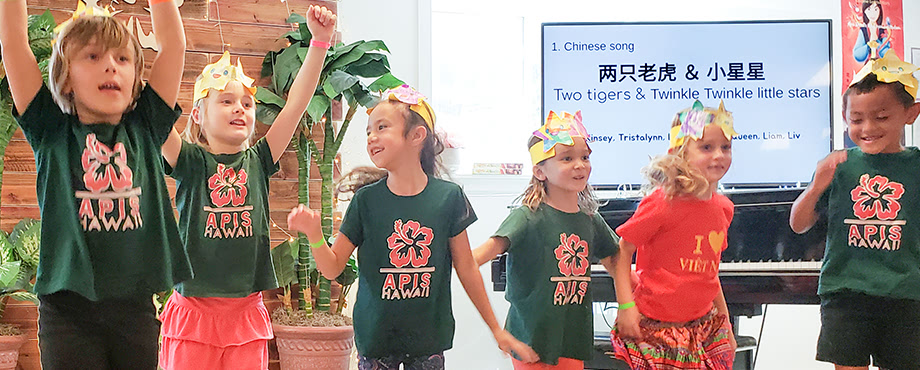
From Kindergarten to Grade 12, APIS students study Chinese, Japanese, and Korean, immersing in the language and culture to become true global citizens. APIS offers a fully-articulated language continuum, building students’ language skills within our personalized, project-based learning environment.
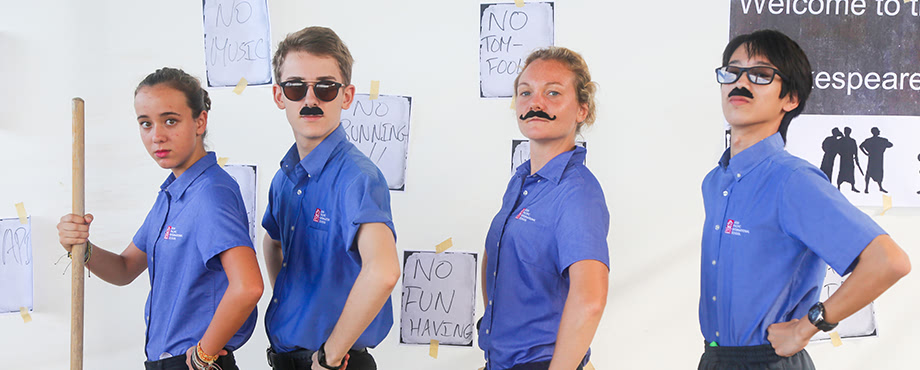
Elementary students master musical concepts through singing, dancing, drama, and playing instruments, and they also have the opportunity for private piano lessons. In middle and high school, students learn guitar, sing in the chorus, and can select an instrument to play in the band, which performs for the community. Visual art across grade levels includes drawing, painting, printmaking, and ceramics, while digital imaging and video classes focus on storytelling through media manipulation. Students showcase their performance abilities in regular theatre productions and dance and music recitals.
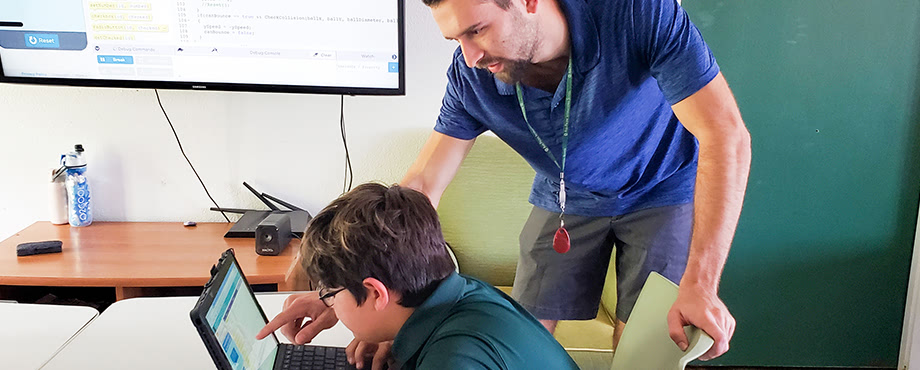
APIS has a fully-articulated computer science program, which begins with coding and robotics in elementary and advances to coding languages like Java, C++, and Python and beyond in high school. Math students have the opportunity to compete against other island schools in the MathCounts competition. Additional science, technology, and engineering exploration includes construction, digital and video imaging, and architecture design. Our STEM program is supported by one-to-one computer access, a maker space, and robust IT infrastructure.
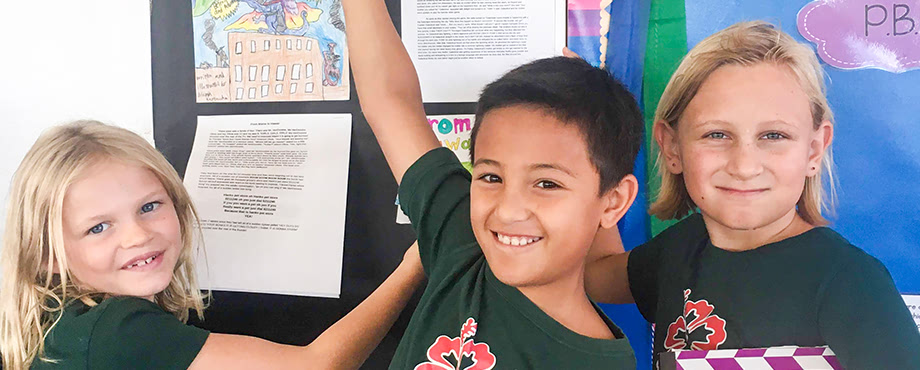
Developing strong writing, speaking, and reading skills are essential to being effective communicators. APIS’ literacy program, using Columbia University’s Lucy Calkin’s reading and writing workshops in elementary and middle school and rigorous research-based humanities program in the high school, ensures every APIS graduate develops communication skills to share their knowledge, experiences, and themselves with the world.
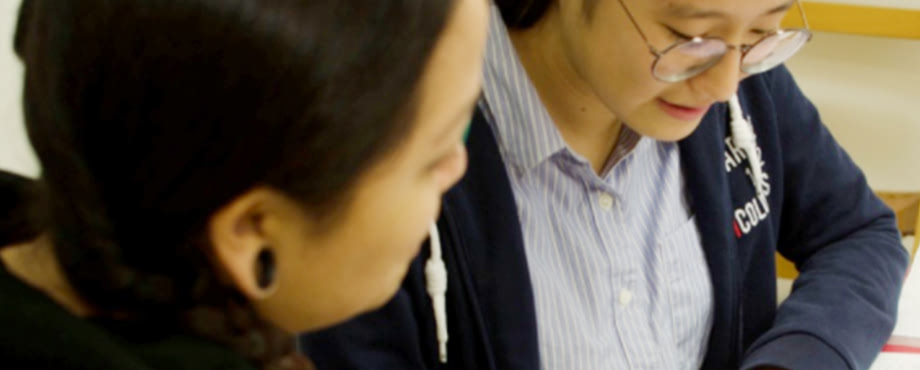
The APIS English as an Additional Language (EAL) program provides multilingual students with individualized instructional and social support, enabling and empowering each student to participate fully in APIS’s academic and social activities as well as in local and global English-speaking communities. We offer a comprehensive approach to English proficiency screening, placement, program delivery, and assessment, focusing on targeted skill development in a student’s areas of need.
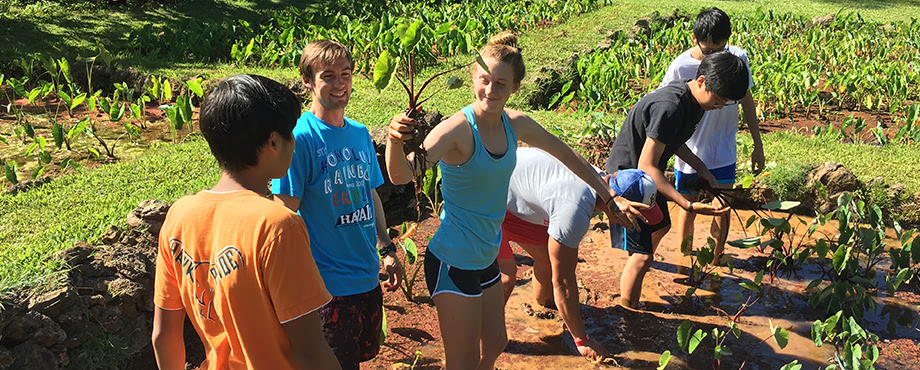
Beyond being an integral part of planning, planting, and sustaining a working farm, students experience the systems involved in producing healthy food while encouraging respect for the ʻāina (land), collaboration, and creativity. Living on an island rich in culture and history provides a unique opportunity to develop an appreciation for traditional Hawaiian farming methods and to raise awareness about each students’ ecological footprint.
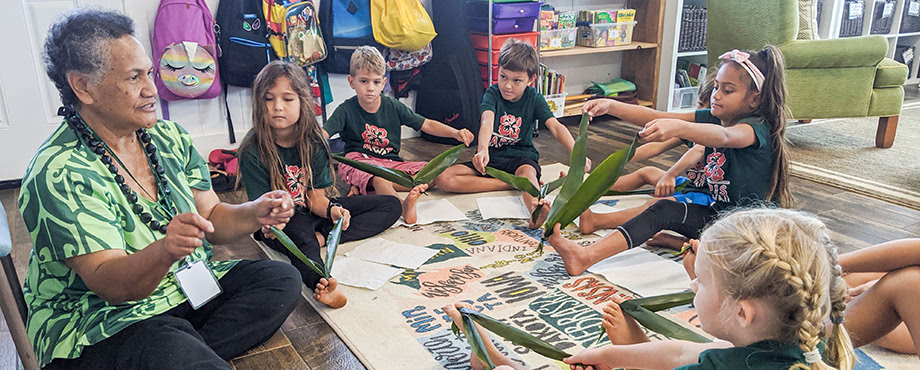
Through service trips to the taro patch or fish pond, integration of Hawai‘i-focused texts into language arts courses, or exhibitions of hula or oli (chants), students explore the rich historical and cultural context of our campus. With a Native Hawaiian kūpuna (elder), elementary students have weekly Hawaiian Studies classes to learn ‘ōlelo Hawai‘i (Hawaiian language), mele (songs), and other cultural lessons.
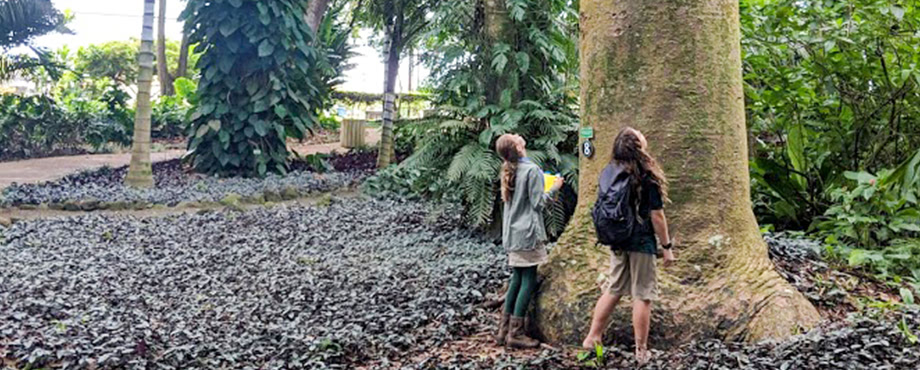
APIS’ outdoor education program explores our rich resources within our 97-acre campus and in our neighboring and global community. Through camping trips on O‘ahu and neighboring islands, hiking, survival training, and team-building activities, students gain leadership skills and take steps to become sustainable stewards of resources.
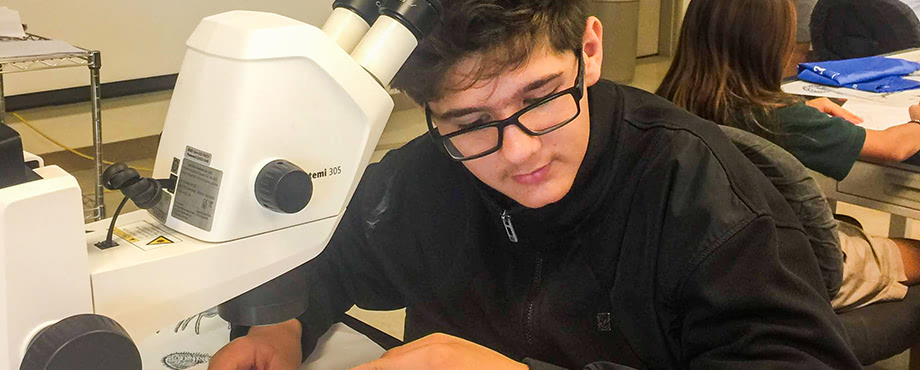
Through the application of physical and life science concepts, our Hawai‘i environment becomes the ultimate laboratory for exploring living and nonliving environments of the Pacific Ocean as well as local rivers and lakes. Students apply critical thinking and citizenship skills to address ethical and social issues, including coral depletion, fishing practices, and the global climate.
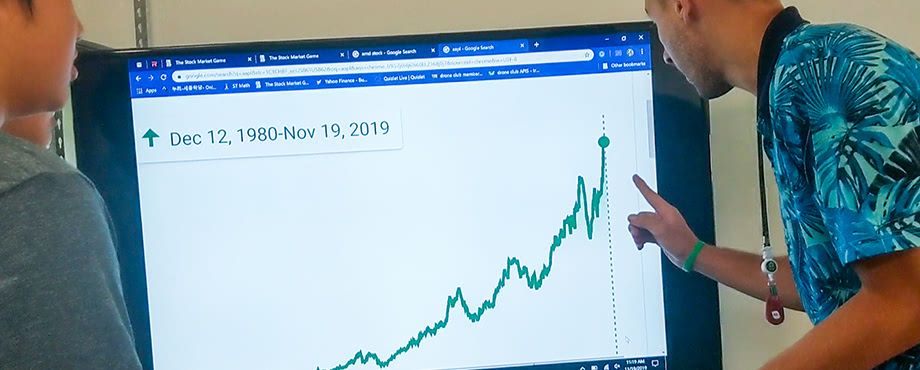
Throughout this course, students compete in The Stock Market Game, investing $100K and competing against other O‘ahu schools to have the greatest returns. With this Wall Street-based curriculum, students build a fundamental understanding of investing through real-world skills practice in math, English language arts, economics, social studies, and other subjects.
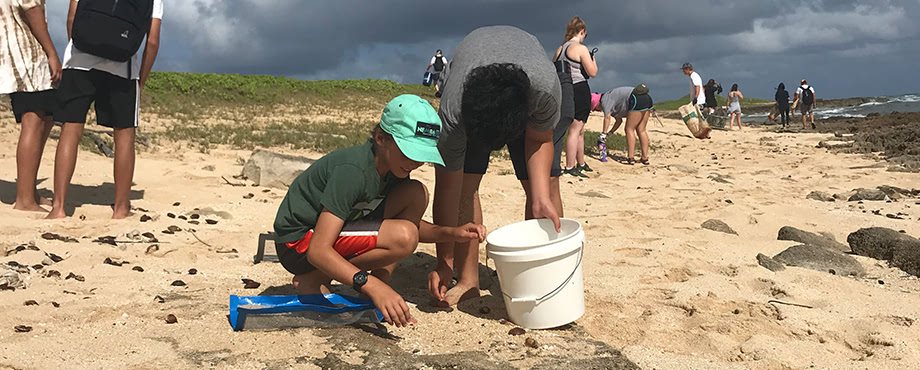
The Global Issues Network (GIN) is an internationally-recognized group that allows students to tackle the twenty most pressing challenges to create a better future. With an interdisciplinary lens, students investigate real-world issues affecting our communities, nations, and world and are then challenged to examine, propose, develop, and act on solutions.
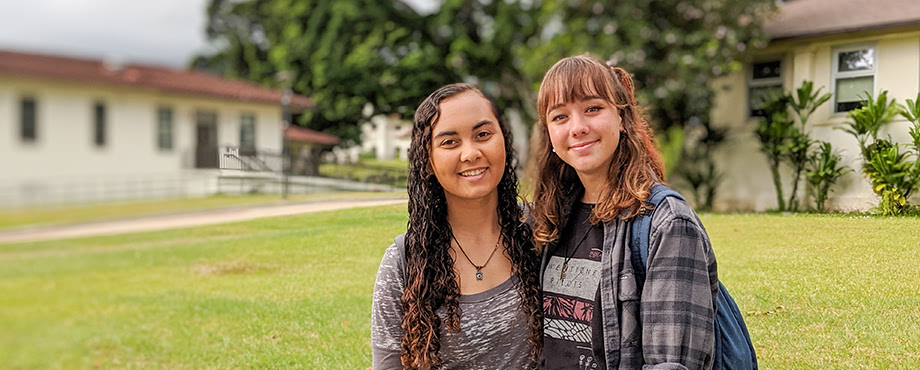
Advanced high school students have the opportunity to take actual college courses offered in partnership with the University of Hawai‘i, Windward Campus. These courses count for dual credit, meaning APIS credit and college-level credit, which may be transferred to other universities.
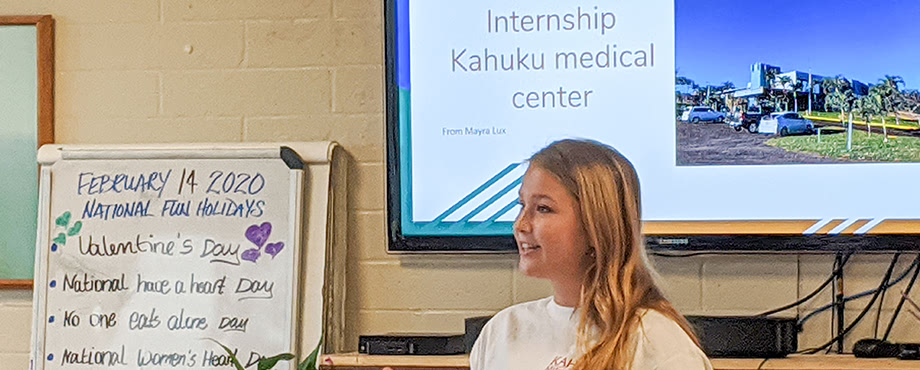
All juniors do a month-long internship in a local business, gaining real-world lessons in fields of interest and creating relationships with industry experts. The final exhibition of the internship includes students sharing a project they completed and reflecting on lessons learned.
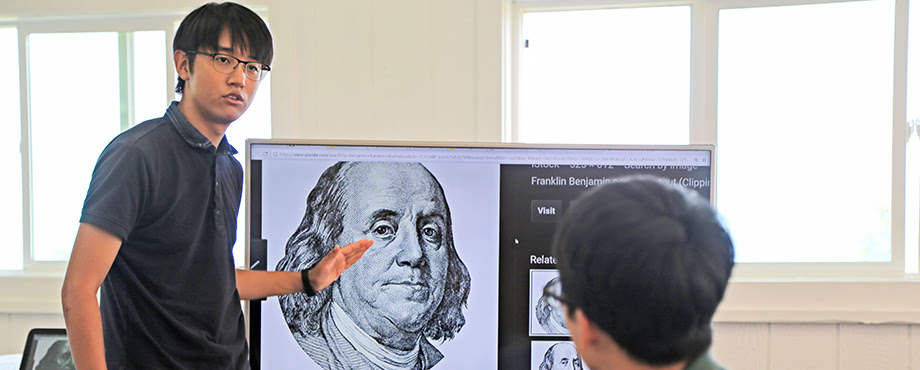
What are you passionate about? This question has led our students to pursue studies in social media marketing, kinesthesiology, English language teaching, advanced digital imaging, Native Hawaiian plant conservation, and more. Students design their course description and then are matched with a teacher or mentor to guide their learning, including exhibitions and internships.
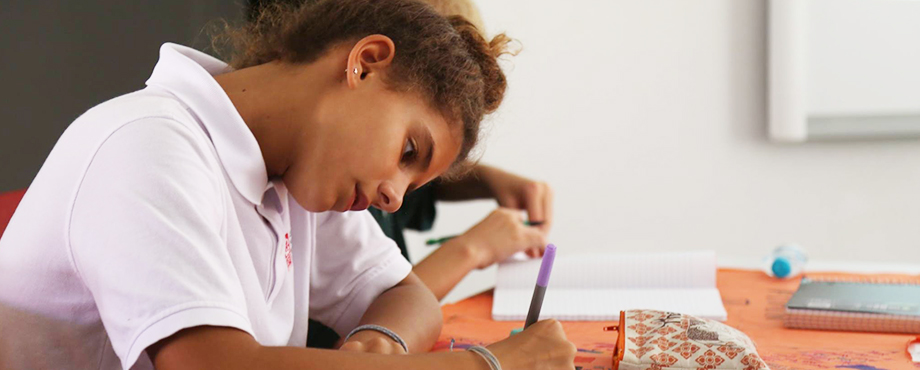
Learning at APIS does not stop when the school day ends. Our Signature Evening Study Hall Program offers complimentary evening academic support for both our day and boarding students. From 7 to 8:30 p.m., students meet with teachers who specialize in content areas, like math, English, or East Asian languages, to receive individualized support. Art studio hours and music sessions are also offered.
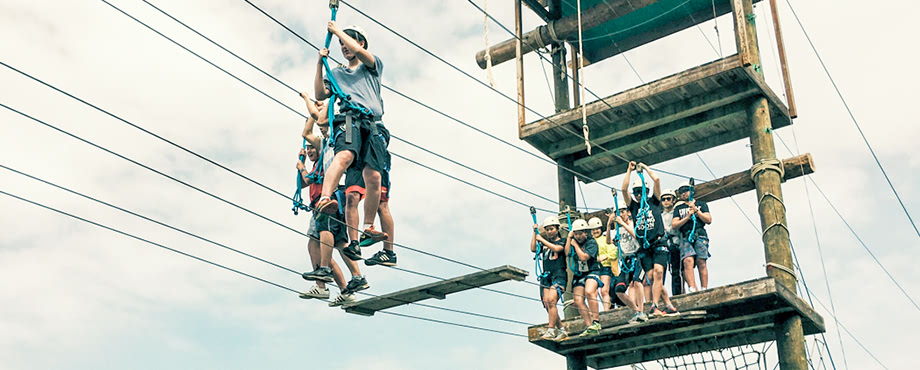
Every year, our middle school students are allowed to participate in a month-long project-based learning collaborative between the two campuses. Students from the Seoul campus will have the opportunity to travel to Hawai‘i during the fall semester while the Hawai‘i campus students travel to Seoul during the spring semester. Each group will be given a chance to explore topics such as cultural identity, globalization, and sustainable development.
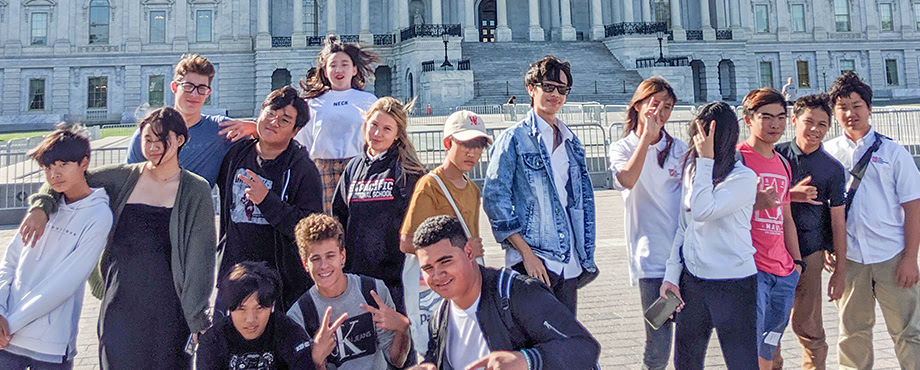
History lessons come to life as students explore the United States’ capital, visiting museums, the Capitol, and more. Students also tour universities in the area, including George Washington, Georgetown, and the University of Maryland.
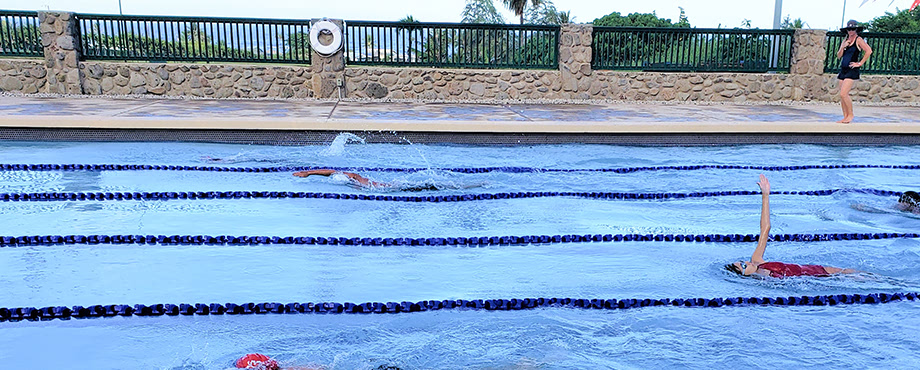
With our twenty-five meter pool as the classroom and the Pacific Ocean as a backdrop, every student at APIS learns water safety, drowning prevention, and can participate in water polo and on the competitive swim team.
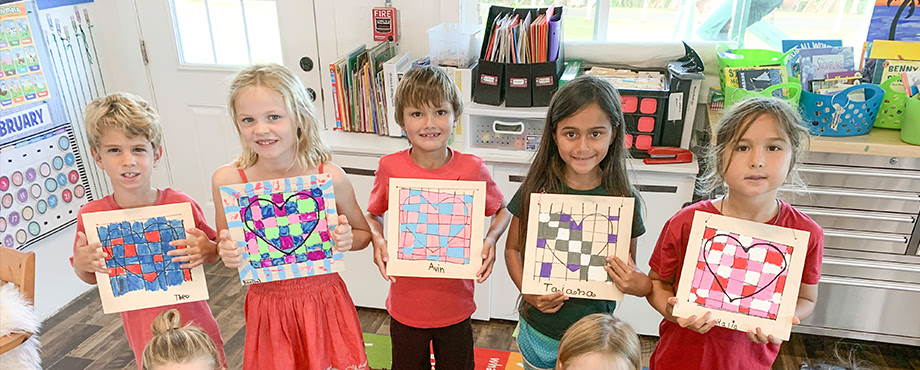
After elementary school ends, a number of enrichment classes enable students to explore possible passions: piano, golf, swimming, Korean, robotics and coding, art, farm and garden, and more. APIS also welcomes community partners and volunteers to offer additional enrichment options.






